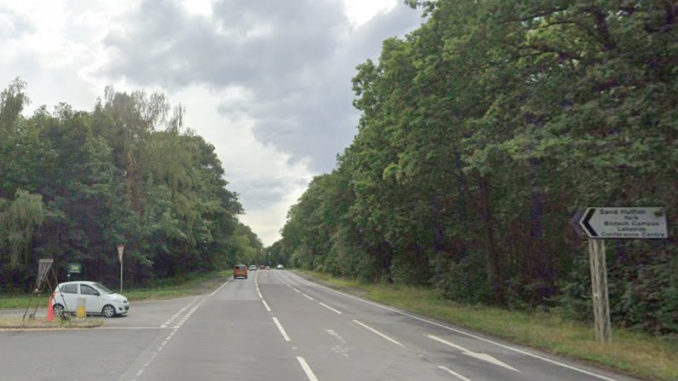
An influential committee scrutinising transport issues across England’s largest county has accused National Highways over presiding over a “disconnect” between the government body and the communities major roads run through, saying local knowledge is being overlooked.
Councillor David Staveley, chair of North Yorkshire Council’s transport, environment and economy scrutiny committee, told urged four National Highways officers to highlight how schemes aiming to improve roads such as the A66 and A64 were being developed while elected community representatives were not being kept informed or consulted.
Councilor Staveley was speaking days after business minister and Thirsk and Malton MP Kevin Hollinrake highlighted how National Highways were taking more social factors in account when analysing if it represented value for money for taxpayers.
He said a factor in limiting the progression of the long-awaited upgrade of the A64 had been that the road led to the coast, where the sea meant the population was less than a road to an urban area.
The scrutiny committee meeting heard value for money assessment included likely return to taxpayers from the investment, as well as value judgements about impacts which could not easily be quantified.
They said in a transport context, this covered quantifiable economic impacts such as travel time savings, changes to vehicle operating costs, improvements to road safety, journey time reliability; health and safety and environmental impacts.
The committee had heard the National Highways officers that they had completed a “value engineering study” to simplify the potential dual carriageway scheme for the A64 Hopgrove to Barton-le-Willows scheme.
However they added value for money on the project “remains low” due to increases in other areas such as inflation, carbon reduction and biodiversity measures.
Councillor Caroline Goodrick told the National Highways officers: “If there are changes to the scheme I think it’s really important that the local members, including myself, understand what those changes are because that might affect… we have the local knowledge.
“We have a lot of local knowledge and it seems to be swept under the carpet because you’re not really interested and that makes me really cross.”
She said it was likely the York outer ring road would be dualled on the northern side, delivering “traffic in a much faster capacity” to the Hopgrove roundabout junction of the A64, which was “already oversubscribed and cannot cope with the traffic going towards it”.
Coun Goodrick said: “I’m really sorry, but it may be low value for money, but from a social and economic and residents’ point of view this is really important to them.”
National Highways officers responded saying ministers were considering a range of factors, before underlining there were more than 30 schemes being considered to start after 2030 and that there was “no guarantee they’ll be taken forward into construction”.
Coun Goodrick stated: “It is now recognised as one of the most stressed routes on the network. The local network is now struggling because local people will try and divert away from the A64, which I understand is the very thing you don’t want to happen.”
Councillor Steve Mason suggested councillors were having their “expectations managed”, before Councillor David Jeffels said the time had come to consider alternatives to dualling the road, such as widening the road.
National Highways officers replied they would follow their “very prescribed process”, but they would be happy to develop bespoke systems to interact with the councillors.
Concluding the meeting, Coun Staveley said councillors were consistently highlighting that National Highways were overlooking their views.
He said: “There does seem to be a disconnect between the National Highways assessment of value for money and the local members’ assessment of value for money.
“You could argue that we’re being parochial and just taking a local view on it, but clearly issues raised by councillors show a greater appreciation for the wider economy at the far side of these bottlenecks and these inefficient traffic flows, so we are not just trying to help ourselves.”
National Highways officers said their body was “essentially a delivery agent for the Department for Transport”, which set the policies.
He said: “The challenge for our team is they are commissioned to do specific studies and only do those specific studies.”


Be the first to comment